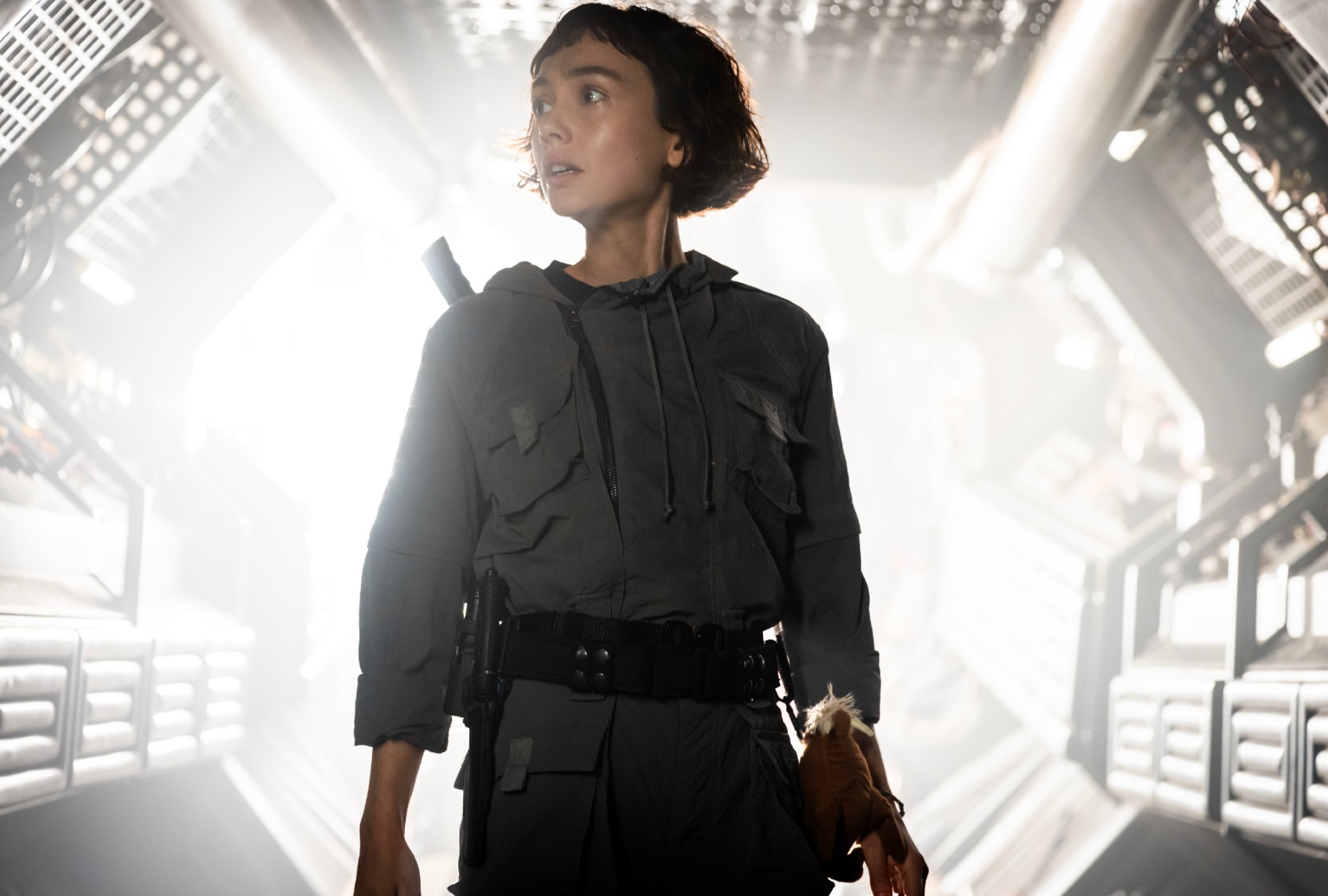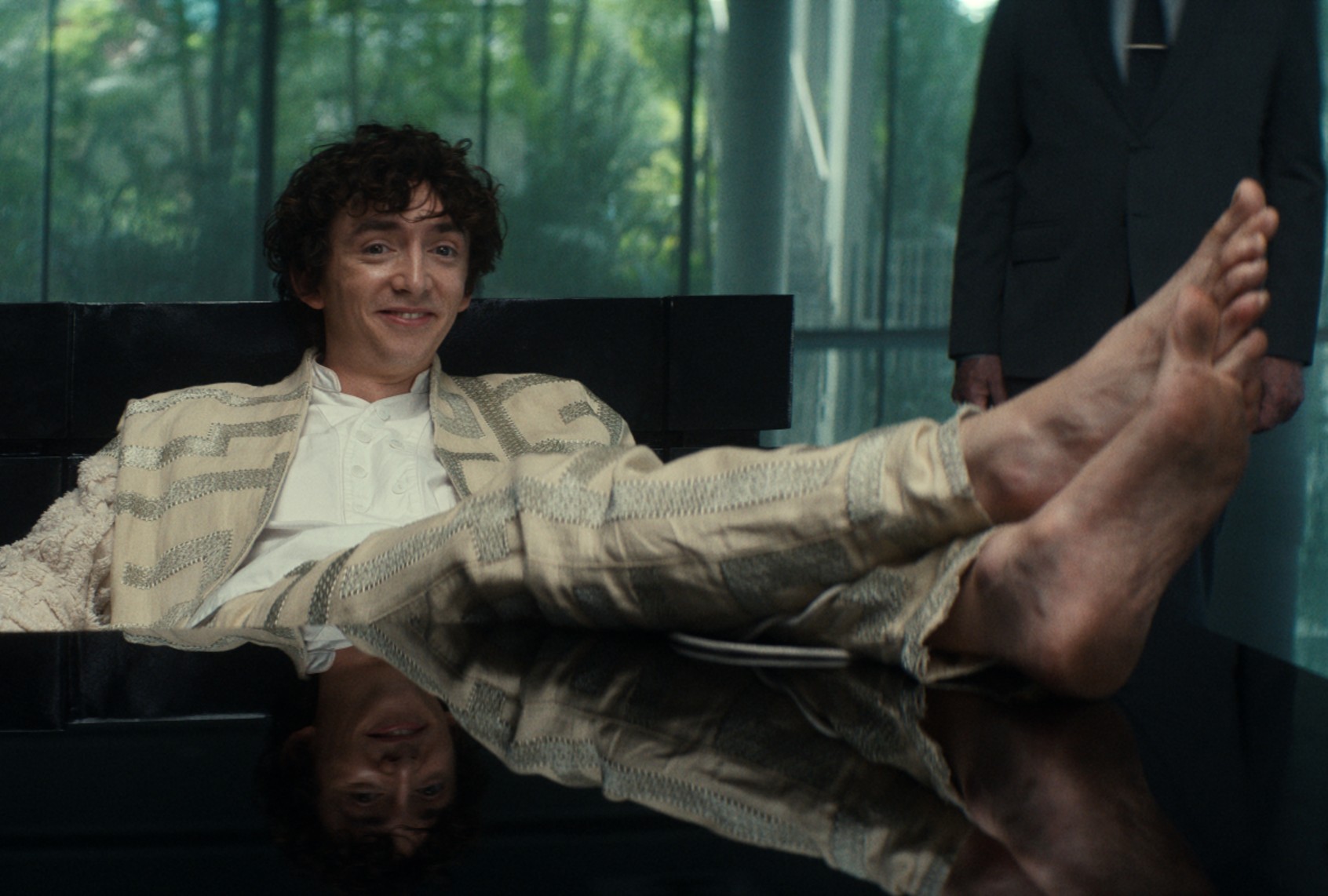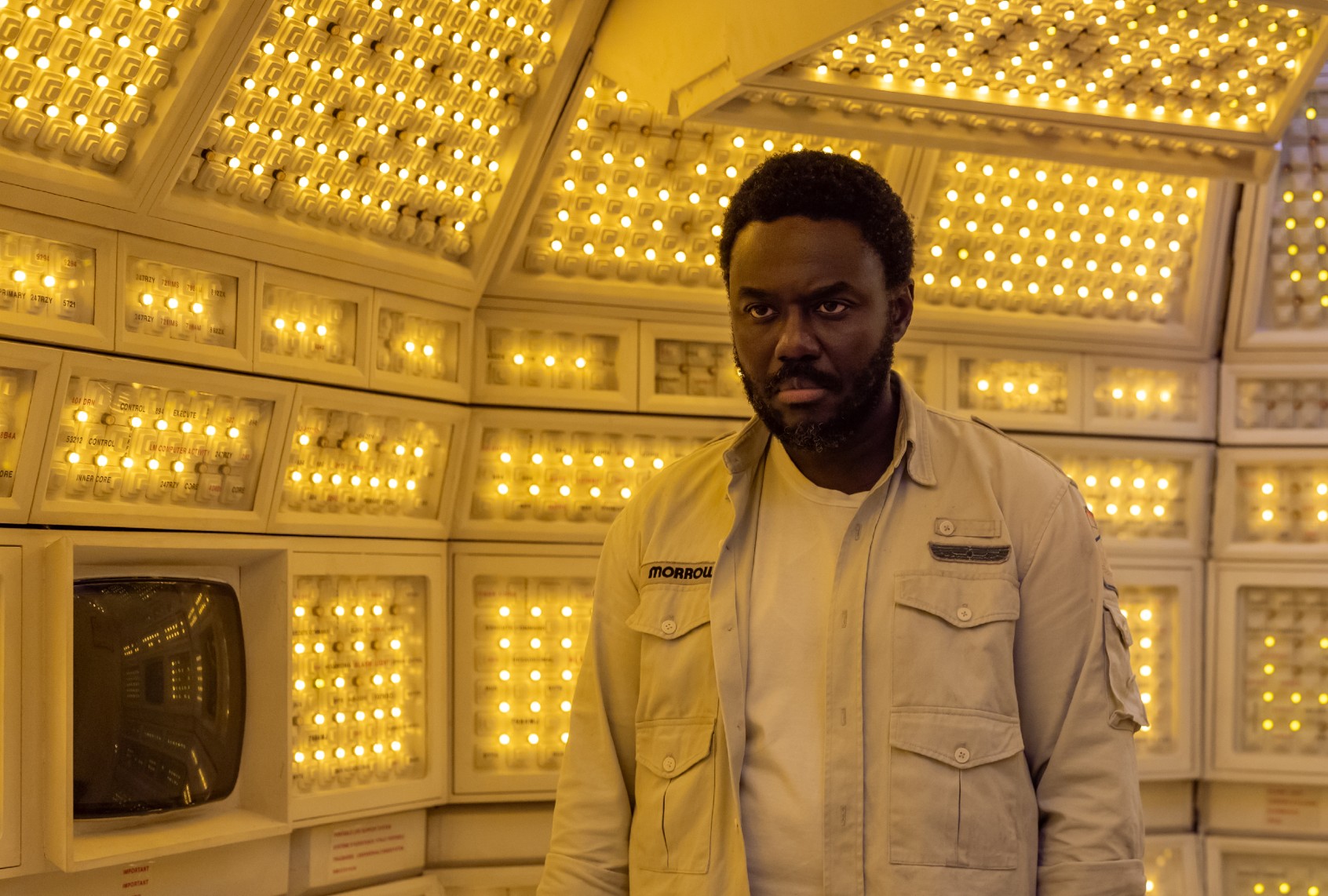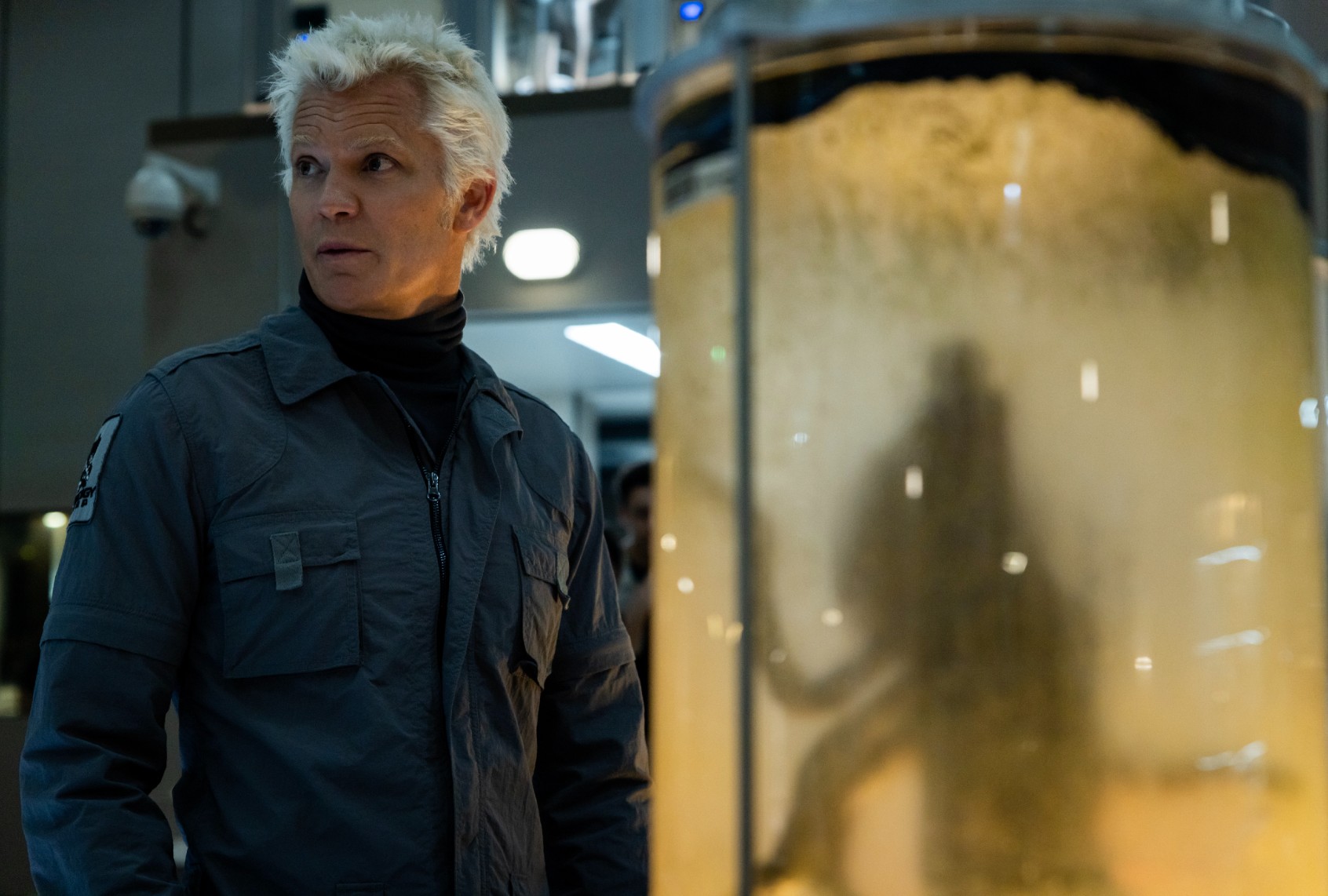“Alien: Earth” draws its influences from selections across the sci-fi movie universe, but the mechanical soul of its eight episodes is described in one killer quote from the second and greatest movie in Ridley Scott’s xenomorph franchise.
It’s not the one most people call to mind, i.e., Ellen Ripley’s roar before she battles the alien queen trying to kill her surrogate daughter. There are no defenseless children in “Alien: Earth.” Quite the opposite.
In choosing to set “Alien: Earth” two years before Sigourney Weaver’s protagonist enters the picture, Hawley trains our focus on the corporations that brought the xenomorph nightmare into being.
But Ripley has another line that sums up the show. Right after she explains how the corporate toady overseeing her doomed military mission planned to betray her and their marine protectors, she turns to the traitor and muses, “I don’t know which species is worse. You don’t see them f**king each other over for a godd*mn percentage.”
If anyone could convincingly realize this thought experiment, it’s Noah Hawley. The “Fargo” creator expanded a single Coen Brothers movie into a multi-season anthology about the corruptibility of American goodness.
With “Alien: Earth,” he has a broader canon to play with, one with plenty of unclaimed space.
In choosing to set “Alien: Earth” two years before Sigourney Weaver’s protagonist enters the picture, Hawley trains our focus on the corporations that brought the xenomorph nightmare into being. This aspect of the franchise is begging for illumination and expansion. In these first episodes, “Alien: Earth” makes a stellar effort to conquer that mission.
Thus far, we’ve seen the Weyland-Yutani Corporation’s version of our bleak tomorrow play out in space. But Earth is the perfect environment for a xenomorph infestation, what with all the forests full of unsuspecting prey and cities teeming with ambitious climbers willing to do whatever it takes to get that bonus or promotion.
Not that we need much of a reminder, but we are presently backsliding into the future in a way that makes the technocracy Scott introduced in 1979 more plausible than ever. A century from now, according to Hawley’s vision, Earth will be governed by five corporations: Weyland-Yutani, Lynch, Dynamic, Threshold and Prodigy.

(FX) Sydney Chandler as Wendy in “Alien: Earth”
Earth is the perfect environment for a xenomorph infestation, what with all the forests full of unsuspecting prey and cities teeming with ambitious climbers willing to do whatever it takes to get that bonus or promotion.
I’m betting FX will give Hawley plenty of time to introduce those other companies. But these opening installments dive into the belly of Prodigy Corporation, whose childish founder Boy Kavalier (Samuel Blenkin) built his trillion-dollar empire on androids, synthetic biotech and cybernetics.
But the boy genius’ latest innovation, the Hybrid, places a human consciousness into a fully synthetic body.
The Prodigy founder’s first successful transfer is a terminally ill girl who renames herself Wendy (Sydney Chandler), taking inspiration from her maker’s favorite book, J.M. Barrie’s “Peter Pan.”
Other sick children follow, and soon Wendy has a small band of Hybrids around her, all with nearly-indestructible bodies, heightened strength and the minds of schoolchildren. (Hawley has a yen for interweaving fairytale fantasies into his dark plots to accentuate their bitter, ineluctable conclusions.)
Only Wendy is endowed with a supercomputer for a brain, placing her nearly on par with the scientist android Kirsh (Timothy Olyphant), the closest approximation the superbeings dubbed The Lost Boys have to a parental figure.
“Alien: Earth” sets up the sylph-like Chandler to be the series’ breakout star, and she aptly captures the personality and demeanor of a wiser-than-her-years kid in a woman’s skin. Her Wendy is an arrow flying into dangerous places with a child’s delusions of immortality. But Chandler’s human machine also presents a benign, feather-light rendition of innocence that doesn’t make much of an impression until the stakes increase.

(FX) Samuel Blenkin as Boy Kavalier in “Alien: Earth”
Before our titular space monster skitters into the picture, “Alien: Earth” places before us the ages-old mankind versus machine quandary. We’re nearly there in our reality, with innovations in artificial intelligence shortening the stretch between our current limitations and a scenario in which a human mind can merge with a mechanical one.
A.I. is becoming more lifelike by the day, making Olyphant’s quirky and very human contribution to the series’ android lineage a special kick to watch, and a welcome departure from his various lawman roles. Like Ash and David before, Kirsh is a figure of questionable loyalty that Olyphant plays with coolness instead of a chill. The magnetism of Olyphant’s performance is in how he keeps Kirsh’s feelings, if the android has any, closely hidden within its code.
Before our titular space monster skitters into the picture, “Alien: Earth” places before us the ages-old mankind versus machine quandary.
In Kirsh’s view, it’s better to be a robot than a human, or even partly human. Watch Olyphant’s construct for a while, and you may find yourself agreeing.
Initially, Wendy believes she’s still a real girl, which is encouraged by Arthur (David Rysdahl) and Dame Sylvia (Essie Davis), a married pair of scientists working closely with her and the rest of the Hybrids. Kirsh wants to quickly disabuse her and the other Lost Boys of that idea, given his experience of being sentient property and, perhaps, his experience of typically being the smartest one in the room.
Everything changes once a Weyland-Yutani Corporation spaceship, the Maginot, crashes into Prodigy City.
On board are a variety of uncategorized specimens; a lot of dead people, not all of whom perished in the crash; and a cyborg, Morrow (Babou Ceesay), who isn’t interested in working with Prodigy’s rescue team. His sole concern is in securing the life-forms on the Maginot, no matter the cost, even if people must die for that to happen.
Boy Kavalier feels the same way. He decides to set loose his newest products, the Lost Boys, to retrieve the aliens he claims as his by the rule of “finders, keepers.”
Caught in the middle are Wendy and her brother, Joe Hermit (Alex Lawther), whose tactical unit is also assigned to secure the Maginot – and who Wendy dashes off to rescue once the xenomorph escapes.
This is the launch point for an examination of what makes us human, a notion set into stark relief by Kavalier’s heartlessness, Morrow’s mercenary fervor, and Kirsh’s combination of icy logic and hot disdain. Once the aliens are secured in the Prodigy compound, the synth children become at once more and less important. The hybrids’ purpose is to model a means for people who can afford it to live forever. What could be more of a game-changer than that? An intergalactic bioweapon, of course.
Corporate inhumanity is a core feature of the “Alien” movies, but “Alien: Earth” uses a variety of faces to illustrate it. The juvenile insouciance of Blenkin’s trillionaire is one, a grinning imp who waves his bare feet around in the way of someone who means every offense.
But Ceesay’s outstanding rendition of a cyborg is more alarming and somehow tragic. Morrow is a human being who has mechanically upgraded himself to the point of losing his capacity for mercy or morals. In a world that views people as exploitable units and labor, the less human you are, the better.

(FX) Babou Ceesay as Morrow in “Alien: Earth”
It’s fairly obvious who Hawley channeled to create Prodigy’s overlord, whereas Sandra Yi Sencindiver’s Yutani fits a concept; she’s all silk tailoring and iron will. Once the boy genius and Yutani sit across the table from each other, it becomes easier to see why the movies focus on her company’s exploits as opposed to his.
On the other hand, Boy Kavalier is such an evil twerp that you want him to stay around long enough to earn the outcome he deserves, whatever that ends up being.
To be clear, this does not in any way hint at the culmination of this first season, which spends six of its eight episodes building toward precisely what we expect from an “Alien” tale. No good can come of placing a bunch of fragile children’s minds into near-indestructible adult bodies, unless you count comedy as a kind of good. (The entire Lost Boys ensemble is terrific, but Jonathan Ajayi gives Smee a perpetual case of the kiddie wiggles that lightens up nearly every scene he’s in.)
Start your day with essential news from Salon.
Sign up for our free morning newsletter, Crash Course.
It wouldn’t be an “Alien” story if the xenomorph didn’t escape, along with the other organisms the Maginot was transporting. Yes, there are more dangers in space than the famed killer cockroaches designed by H.R. Giger. One manages to be even creepier, if you can believe it. But since we know what that toothy nemesis is capable of, we almost feel sorry for the soldiers-for-hire that go up against it.
Hawley keeps the horrors realistic by using mostly practical effects to depict various alien encounters, which makes the most of the tropical setting. Prodigy City is located in what was formerly Thailand, where the series was filmed, giving every character, human and otherwise, plenty of space to hide and misbehave. The verdant flora augments its cinematographic impressiveness, although set design homages to iconic futuristic thrillers, including Stanley Kubrick’s “2001: A Space Odyssey” and Scott’s other classic, “Blade Runner,” are a welcome touch.
Setting down the xenomorphs on Earth is a stunning, scary idea that Hawley builds from a schematic illustrated with tension, tragedy, fascination, and grim familiarity with our species’ greatest flaws: hubris and greed.
Between this and the three corporate players we have yet to meet, “Alien: Earth” can go in assorted directions from here, which is an exciting thought. Earth is vast and full of people working against each other. Xenomorphs thrive anywhere by focusing on their species’ survival. Maybe that answers Ripley’s hypothetical question. I hope we’ll have a few seasons to find out.
“Alien: Earth” premieres with two episodes at 8 p.m. Tuesday, August 12 on FX, Hulu and Wednesday, August 13 on Disney+ internationally. New episodes debut on Tuesdays.
Read more
about the “Aliens” universe


